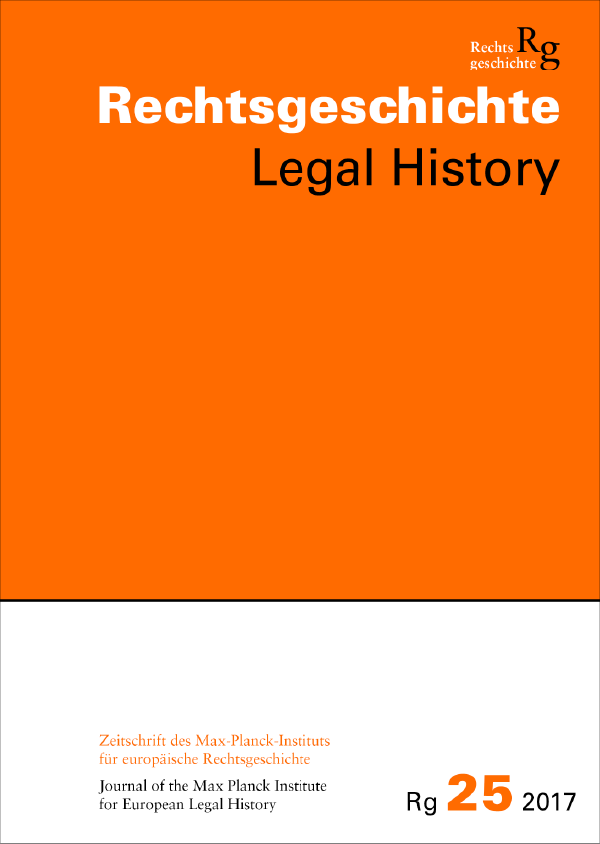Rhetorical Engineering of Emotions in the Courtroom: the Case of Lawyers in Modern France
DOI:
https://doi.org/10.12946/rg25/286-295Schlagworte:
lawyers, courtroom, emotions, rhetoric, eloquenceAbstract
As a way of »performing the law«, courtroom speeches have been a fundamental component of the legal ritual and a basic component of lawyers’ identities in many countries with civil law traditions: lawyers have presented themselves and have been culturally perceived as legal experts who make use of emotional strategies in order to achieve their aims in court. Within the courtroom, emotions have been both rhetorical tools and goals, especially in criminal trials where forensic eloquence aimed to create an emotional environment that was favourable to the client. In France, a rich literature on the art of forensic rhetoric was both the result and the basis of a (re-)construction of a tradition that was extremely self-conscious, self-reflective and fundamentally emotional. The present work analyses the role of emotions in lawyers’ courtroom performances in the French legal culture from the beginning of the nineteenth century to the present. Its purpose is to identify the main themes related to the use of emotions in the pleading that legal professionals themselves have considered important – albeit with differing opinions – in the past three centuries. More broadly, this study explores reason / dispassion and emotion in legal practice beyond their longstanding dichotomy. Investigating the courtroom speech as a prototypical forensic performance through the perspective of the legal professionals themselves shows how reason and emotion have been continually intertwined and how legal professionals have consciously strategized approaches to the complex interplay between them in the judicial processes.
Downloads
Veröffentlicht
Zitationsvorschlag
Ausgabe
Rubrik
Lizenz
Copyright (c) 2017 Autor/in

Dieses Werk steht unter einer Creative Commons Namensnennung - Nicht-kommerziell - Keine Bearbeitung 3.0 International -Lizenz.





